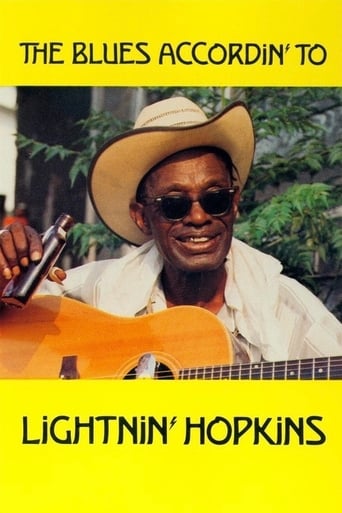
The Blues Accordin' to Lightnin' Hopkins
December. 20,1968Les Blank's portrait of the great Texas bluesman, 'Lightnin' Hopkins. The film includes interviews and a performance by Hopkins. Preserved by the Academy Film Archive in 2002.
Similar titles

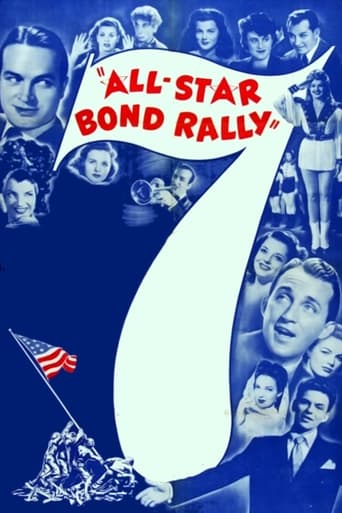
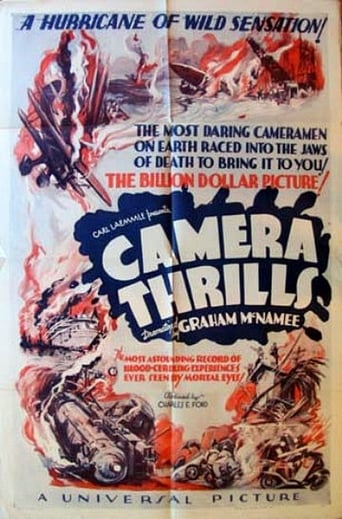
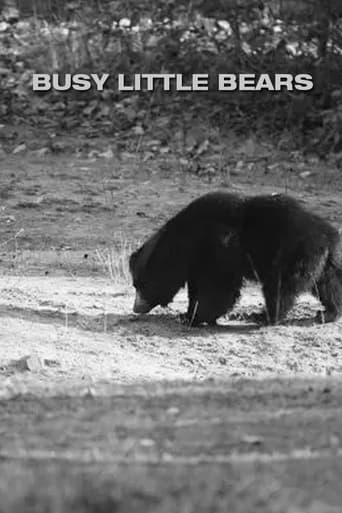
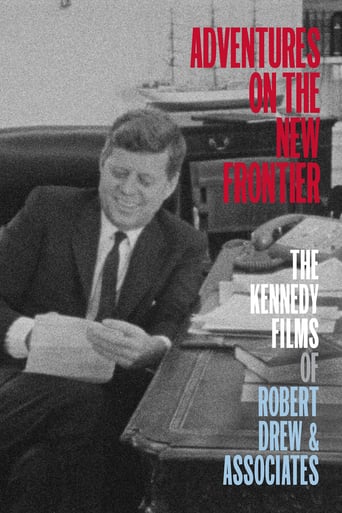
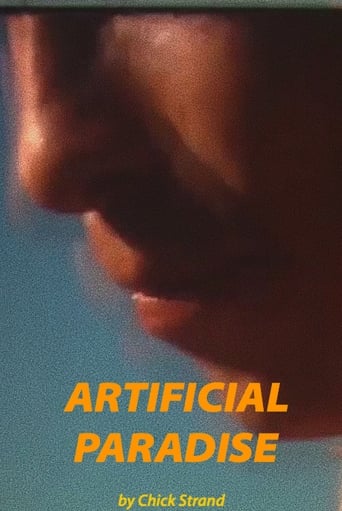
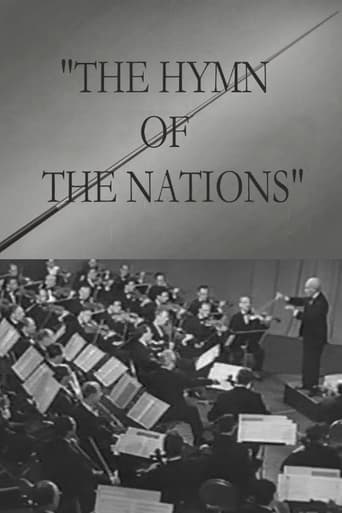

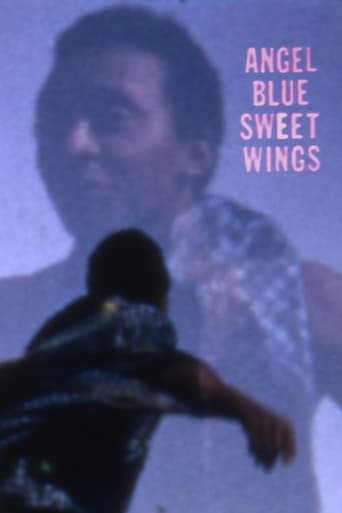
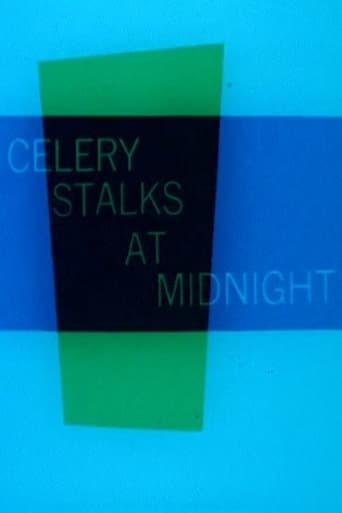
Reviews
Very very predictable, including the post credit scene !!!
the audience applauded
Highly Overrated But Still Good
A Masterpiece!
Before I go any place else, accolades to Turner Classic Movies for airing unknown documentaries like this for an audience who wouldn't even know they existed.Between the heavy Southern black dialect and my own hard of hearing, I probably missed a good portion of what some of the commentators were talking about here, but that's not what I was tuning in for anyway. It's the blues, baby, and the setting is Porter Houston's Barbecue in Texas, 1967. Center stage is guitarist Lightnin' Hopkins, expounding on his brand of music and doing an even better job of showing how it's done. The picture also includes a handful of other local musicians, none of which are named or introduced, so that had me at a disadvantage. One of them was a tortured harmonica dude that wound up writhing on the ground, I just didn't know what to make of that, maybe a severe case of the blues.A couple of real interesting elements though. The black pig and the judge story, as told by Hopkins, was a real treat. The guy with the washboard vest playing with Lightnin' made me wonder why the concept hadn't gone any further. Maybe it has and I'm just not aware of it.For blues fans, this is a trip in the way-back machine that's worth the ride. Problem is, you'll probably have to wait for your own Lightnin' strike to catch it on Turner Classics or some other musical venue.
This early 31 minute film by Les Blank captures what's terrific about Blank's style. The love and admiration he feels for his subjects, his willingness not to sugar coat the dark sides (like Hopkins' drinking), and the embrace of music and food as exemplars of the joys of existence. It's hard not to smile watching Blank's work. The home-spun approach to his film-making – hand drawn titles, an avoidance of anything slick or fancy in his style, no narrator to create distance, makes it feel like you're watching a friend's home movies about a subject they're really excited about. But the art lies in the fact that these 'home movies' uncannily capture people, places and whole cultures with an immediacy and vibrancy that too few documentaries have. I also like that Blank makes his films just as long as he feels they needs to be, without worry. If that means one film is 20 minutes and another 180, that won't bother him. Blank is following his gut, with no look to how it's 'supposed' to be done. By the end of this film, I wanted to run and buy a stack of Lightnin' Hopkins recordings. That's a pretty good endorsement.
A portrait of the great Texas bluesman, Lightnin' Hopkins. The film includes interviews and a performance by Hopkins.Those not well-acquainted with the blues may be forgiven for not knowing Hopkins. But this short film will introduce you to the man: Rolling Stone magazine included Hopkins at number 71 on their list of the 100 greatest guitarists of all time. That is respectable, if you consider just how many great guitarists are out there.But what makes this film good is not even Hopkins, but his world. Without any sort of narrative or political angle, Blank turns his camera on the poor, mostly-Black neighborhood near Houston. This is an interesting commentary on race and class, not so much for its struggle... but just how happy most of these people seem. They have nothing, but the music makes them joyous.
Enormously entertaining half-hour documentary that not only showcases late Texas bluesman Sam "Lightnin'" Hopkins's famous talent for improvisation (the only recognizable compositions here are snatches of 'Meet Me in the Bottom', a version of Buddy Moss's 'Oh Lordy Mama', and Sonny Boy Williamson's 'Good Morning Little Schoolgirl') but--maybe just as importantly--gives the viewer a glimpse of black life in the rural American South. The musical performances, stories, and incidental footage of Centerville, Texas are fascinating. I particularly enjoyed the scenes of Hopkins playing with songster Mance Lipscomb; a few years later, in Bruce Cook's indispensable tome "Listen to the Blues", Lipscomb declared simply that "I can't play with Lightnin' no more" because Hopkins was such a difficult personality. Obviously a must for country blues aficionados (to see how the form survived, authentic and virtually unchanged, well into the 1960s), "The Blues Accordin' to Lightnin' Hopkins" will be of interest to more general audiences as well.
Top Streaming Movies













